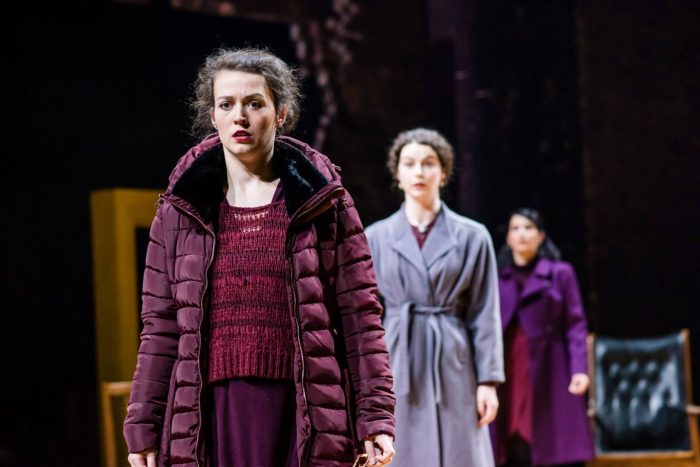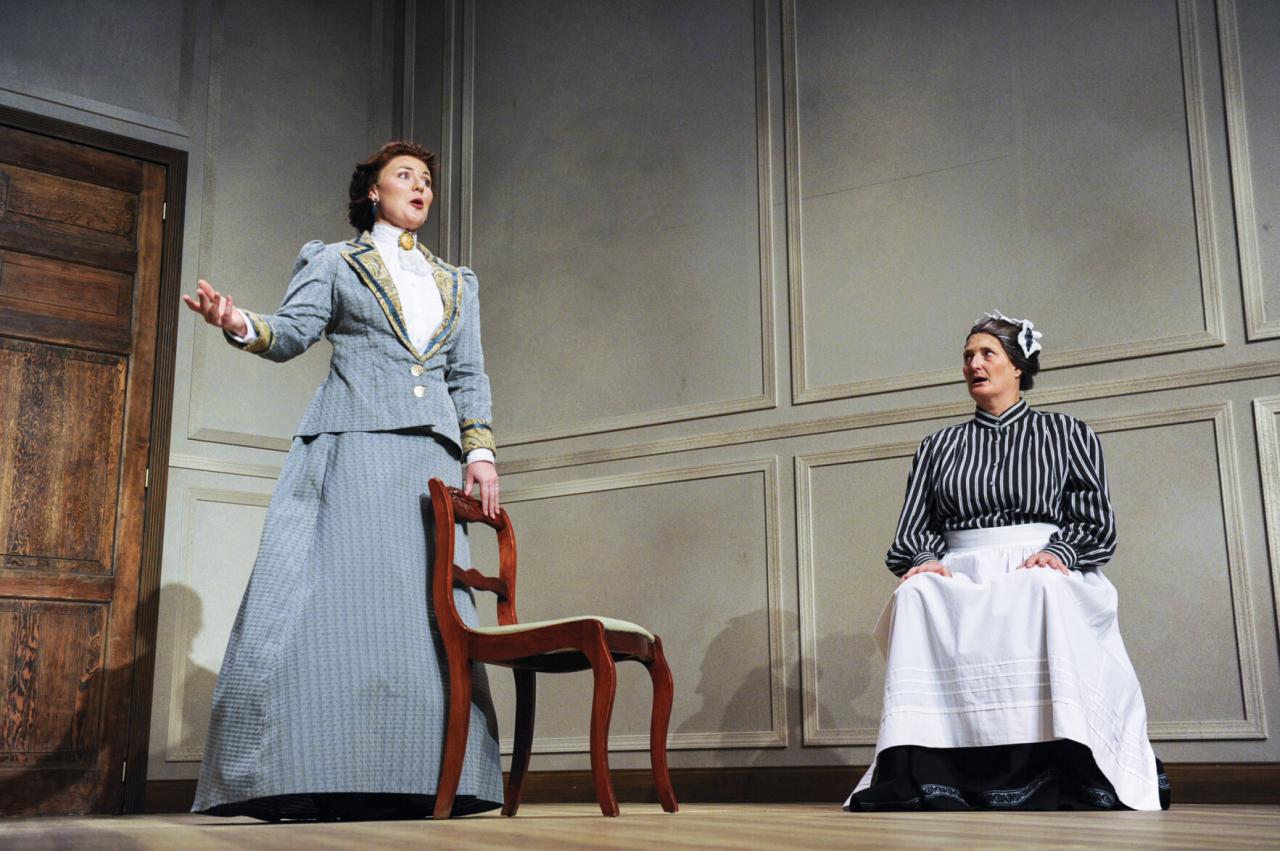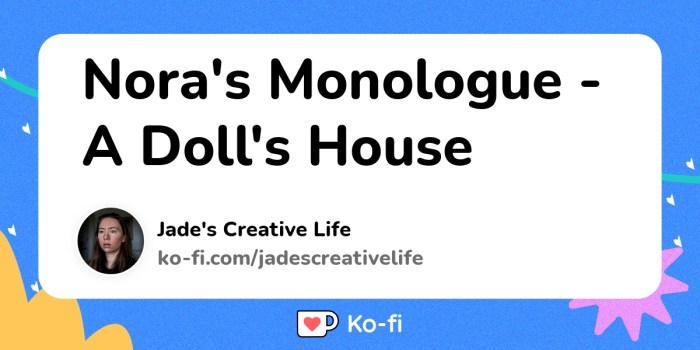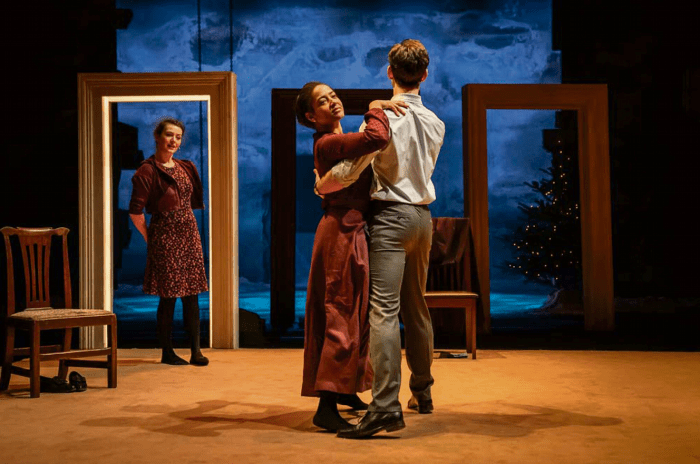A doll’s house monologue nora – Nora’s monologue in “A Doll’s House” stands as a pivotal moment in literature, offering a profound exploration of identity, freedom, and gender roles. This iconic speech reveals the inner turmoil of a woman grappling with the societal expectations and personal desires that shape her life.
As Nora’s words resonate through the theater, we embark on a journey into the depths of her character, witnessing her transformation from a submissive wife to a self-assured individual. The monologue serves as a catalyst for her awakening, illuminating the complexities of her experience and resonating with audiences across generations.
Introduction
Nora’s monologue in “A Doll’s House” is a pivotal moment in the play, revealing her true nature and the awakening of her feminist consciousness.
The play is set in Norway in the 19th century and revolves around Nora, a young woman married to Torvald, a successful lawyer. Nora has been living a sheltered and carefree life, but her world is turned upside down when she secretly borrows money to save her husband’s life.
Nora’s Monologue
In her monologue, Nora realizes that she has been treated like a doll throughout her life, controlled and manipulated by the men in her life.
She declares that she will no longer be a “doll wife” and that she will seek her own identity and purpose in life.
Nora’s Character
Nora Helmer, the protagonist of Henrik Ibsen’s A Doll’s House, is a complex and multifaceted character. Her monologue reveals her inner thoughts and feelings, and it provides insights into her motivations and transformation throughout the play.
Personality and Motivations
Nora is a lively, charming, and spirited woman. She is devoted to her husband, Torvald, and their children, and she seems to lead a happy and comfortable life. However, her monologue reveals that she is also deeply unhappy and dissatisfied with her existence.
Nora feels trapped in her marriage and stifled by the expectations of society. She longs for freedom and independence, and she resents the fact that she is treated like a child by her husband.
Inner Thoughts and Feelings
Nora’s monologue is a window into her inner thoughts and feelings. She reveals her frustration, anger, and resentment towards Torvald. She also expresses her longing for a life beyond the confines of her home.
Nora’s monologue from “A Doll’s House” reverberates with themes of freedom and self-discovery. Like a cat chasing a mouse across the room, Nora’s pursuit of independence and agency becomes a relentless chase, as she navigates the complexities of her own life and the societal expectations that surround her.
Nora’s monologue is a powerful expression of female empowerment. She challenges the traditional roles of women in society and asserts her right to be an independent individual.
Transformation
Throughout the play, Nora undergoes a significant transformation. She begins as a naive and innocent woman, but she gradually grows into a strong and independent individual.
Nora’s monologue is a turning point in her transformation. It is the moment when she realizes that she can no longer live in a lie and that she must find her own path in life.
Themes and Symbolism

Nora’s monologue explores several major themes, including identity, freedom, and gender roles. The use of symbolism, such as the doll’s house and the tarantella, adds depth and complexity to these themes, contributing to the overall meaning of the play.
Identity, A doll’s house monologue nora
Nora’s monologue reveals her struggle to define her own identity outside of the roles society has assigned to her. She has been living as a “doll” in a “doll’s house,” conforming to the expectations of her husband and society. However, she longs to break free from these constraints and discover her true self.
Freedom
Nora’s desire for freedom is a central theme in her monologue. She yearns to escape the suffocating confines of her marriage and the expectations placed upon her as a woman. The tarantella, a passionate and liberating dance, becomes a symbol of her longing for freedom and self-expression.
Gender Roles
The monologue also explores the oppressive gender roles that limit Nora’s choices and opportunities. Society expects her to be a submissive wife and mother, but she rebels against these expectations. Her decision to leave her husband and children is a bold act of defiance against the patriarchal norms of her time.
Symbolism
The doll’s house is a powerful symbol of the constraints that society places on women. It represents the narrow and artificial world in which Nora has been forced to live. The tarantella, on the other hand, symbolizes Nora’s desire for freedom and self-expression.
It is a dance that allows her to break free from the expectations of others and embrace her true self.
These themes and symbols work together to create a complex and nuanced portrait of Nora’s experience as a woman in a patriarchal society. They reveal her struggle for identity, freedom, and self-expression, and they highlight the oppressive gender roles that limit her choices.
Literary Techniques: A Doll’s House Monologue Nora

Nora’s monologue employs various literary techniques to heighten its dramatic impact and convey the depth of her emotions and experiences.
Dramatic Irony
The monologue is infused with dramatic irony, where the audience possesses knowledge that Nora does not. This creates a sense of tension and suspense, as we witness Nora’s obliviousness to the true nature of her situation.
For instance, when Nora declares that she “cannot be happy without a purpose,” the audience knows that her husband has forbidden her to pursue her dreams. This contrast between Nora’s perception and the audience’s knowledge intensifies the emotional weight of her words.
Structure and Language
The monologue is carefully structured, with alternating moments of reflection and emotional outburst. Nora’s thoughts flow seamlessly, mirroring the tumultuous state of her mind.
The language is rich in metaphors and similes, creating vivid imagery and evoking a sense of Nora’s inner turmoil. For example, she describes herself as “a bird in a cage,” conveying her feelings of entrapment and longing for freedom.
Impact of Techniques
These literary techniques work together to enhance the impact of the monologue, immersing the audience in Nora’s emotional journey. The dramatic irony heightens the suspense, while the structure and language convey the depth of her feelings.
Through these techniques, Ibsen creates a powerful and poignant monologue that resonates with audiences, exploring themes of identity, self-sacrifice, and the search for purpose.
Critical Interpretations

Nora’s monologue has been subject to numerous critical interpretations, each offering a unique perspective on her character and the play’s themes. These interpretations range from traditional feminist readings to more contemporary queer and postcolonial approaches.
Feminist Interpretations
Feminist critics have long analyzed Nora’s monologue as a powerful indictment of the patriarchal society that confines women to domestic roles. They argue that Nora’s awakening to her own desires and the realization that she has been living a lie reveal the oppressive nature of marriage and the limited opportunities available to women in the 19th century.
Evidence from the text to support this interpretation includes Nora’s declaration that she is “not fit for living with another person” and her desire to “be a human being, not just a wife or a mother.” These statements reflect Nora’s growing awareness of her own identity and her rejection of the traditional roles imposed upon her.
Strengths:Feminist interpretations provide a powerful lens through which to understand Nora’s monologue, highlighting the play’s critique of patriarchal society and the limitations placed on women.
Weaknesses:Some critics argue that feminist interpretations oversimplify Nora’s character and reduce her to a symbol of female oppression, ignoring the complexities of her motivations and the play’s broader themes.
Historical and Cultural Context
Written in 1879, “A Doll’s House” emerged amidst a period of significant social and political change. The Industrial Revolution had transformed societies, leading to the rise of capitalism and the emergence of a middle class. These developments brought new opportunities for women, but also perpetuated traditional gender roles and inequalities.
Social and Political Issues
The play reflects the social and political debates of its time, particularly the struggle for women’s rights. Nora’s journey symbolizes the plight of women trapped in restrictive societal expectations. The play critiques the institution of marriage as a form of patriarchal control and exposes the hypocrisy of a society that outwardly values family values while privately perpetuating gender inequality.
Impact on Feminist Movements
The play had a profound impact on feminist movements. It sparked discussions about women’s rights and challenged prevailing gender norms. Nora’s decision to leave her husband and pursue her own happiness became an iconic symbol of female liberation and self-determination.
Conclusion

Nora’s monologue is a powerful and enduring piece of literature that has had a profound impact on theater and literature. It is a complex and multifaceted work that can be interpreted in many ways. Ultimately, Nora’s monologue is a testament to the strength and resilience of women in the face of adversity.
Enduring Legacy
Nora’s monologue has had a lasting impact on literature and theater. It has been adapted into numerous stage productions, films, and operas. It has also been the subject of countless critical essays and scholarly studies. Nora’s monologue has helped to raise awareness of the plight of women in society and has inspired countless women to fight for their rights.
Further Research
There are many areas of further research that could be explored related to Nora’s monologue. One area of research could focus on the historical context of the monologue. Another area of research could focus on the different interpretations of the monologue that have been offered by critics and scholars.
User Queries
What is the significance of Nora’s monologue in “A Doll’s House”?
Nora’s monologue is a turning point in the play, as she realizes the limitations of her life and the need to assert her own identity and freedom.
How does Nora’s monologue reveal her inner thoughts and feelings?
Through her monologue, Nora expresses her frustration, anger, and determination to break free from the societal expectations that have defined her life.
What are some of the major themes explored in Nora’s monologue?
Nora’s monologue explores themes such as identity, freedom, gender roles, and the search for self-fulfillment.
How does Ibsen use literary techniques to enhance the impact of Nora’s monologue?
Ibsen employs dramatic irony, metaphors, and similes to create a powerful and emotionally resonant monologue that captivates the audience.